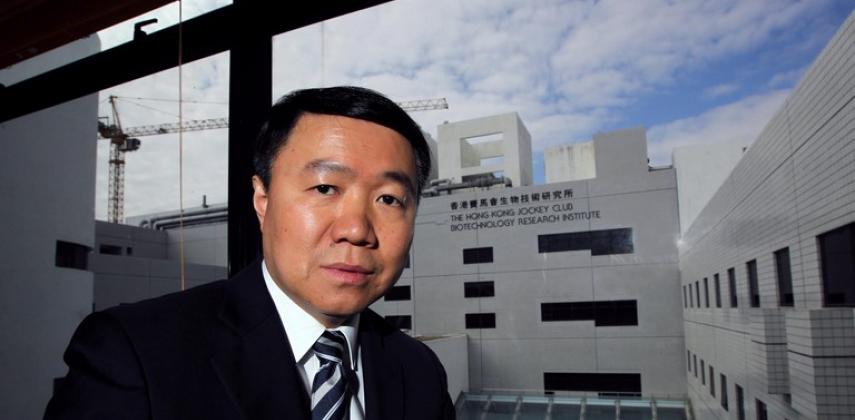EMBA for Chinese Executives
HKUST
A “China Focus, World Vision” is at the centre of the Executive MBA (EMBA) for Chinese Executives programme, offered by the Hong Kong University of Science and Technology (HKUST), which targets Chinese-speaking executives and entrepreneurs in Asia and Greater China.
Programme director Xu Yan says the course integrates cutting-edge management theories with management practices on the mainland, offering Chinese executives and business leaders a world-class platform for learning and interaction.
“We have an international teaching faculty with teachers from Europe, the US and Asia who give students an international view of business management. We are a world-class business school where East meets West,” he says.
The diverse background of students enrolled on the programme offers a unique learning experience for those involved.
“In addition to our students from the mainland, we also have students from Taiwan, Singapore, Macau and Hong Kong who form a highly diversified mix of people,” Xu says. “The programme provides an excellent opportunity for mainland students to look at business practices in Hong Kong and overseas, while non-mainland students can gain insights on how businesses are run on the mainland.”
Students also come from a wide variety of sectors, including finance, information technology, real estate, manufacturing and government. “To maintain a diverse student mix, the programme does not accept more than one student per company,” Xu says. “During group discussions, students from different sectors are able to look at topics from different viewpoints, which inspire the rest of the class.”
The programme takes a practical approach towards education and organises visits to companies both in and outside Hong Kong so that students can experience different work cultures.
“We have study trips to the US and Europe where we visit enterprises and look at their operations and management cultures. We also pay visits to enterprises on the mainland where some of our students work. It is a great experience for students to see with their own eyes how the things they have learnt in books are put into practice,” Xu says.
Students are well-established businessmen who are looking to take their companies to the next level. “The EMBA program does not only have an impact on students on a personal level. It has an impact on their entire organisations,” Xu says.
“We don’t focus on entrepreneurship because most of our students are already successful entrepreneurs. The programme instead tries to help them guide their organisations to a better future.”
To suit busy executives, the programme is delivered in block mode where students receive four consecutive days of teaching, normally from Thursday to Sunday. It consists of 16 modules, with residential modules conducted at HKUST and other modules conducted in cities on the mainland. The residential modules allow participants to continue classroom and small-group discussions so that they can expand their business contacts and get to know their classmates.
Applicants should have a bachelor’s degree from a recognised university and at least 10 years of work experience. They should be sponsored by their company and hold a senior position.
Steven Lien I-Chi, managing director at Gainex International, an international trading company of houseware products, chose to take the programme because he wanted to learn about business practices on the mainland. From Taiwan, he has worked in Hong Kong for more than 10 years.
“The biggest benefit I get from the programme is the interaction with classmates, as many are mainland entrepreneurs,” he says.
“I have learnt the importance of relationship building. The residential module held on the HKUST campus is especially useful as it provides a chance for students to get together after class to build up relationships,” he says.
Lien enjoys the practical nature of the programme, where students not only learn from books, but have the chance to see things with their own eyes.
“I have paid a number of visits to the enterprises of my fellow classmates on the mainland and the experiences are inspiring,” he says. “I get to see theories that I have learned in books being put into use to form a highly efficient management system.”
The insights that Lien has gained from his classmates during group discussions are also beneficial to his business. “Having people from different sectors discuss business issues from different perspectives has really helped me to think outside the box,” he says.
It is never easy to manage time between work and study and Lien advises those who are interested in studying the programme to be open-minded. “For me, taking an EMBA is not about scoring the highest marks in examinations,” he says. “I enjoy the experience very much. Open your heart to learn from others and be willing to contribute what you have to the programme.”
The programme fee for the 2012-13 intake is HK$688,000, which covers all course materials as well as accommodation and meals for classes conducted on and off campus.


